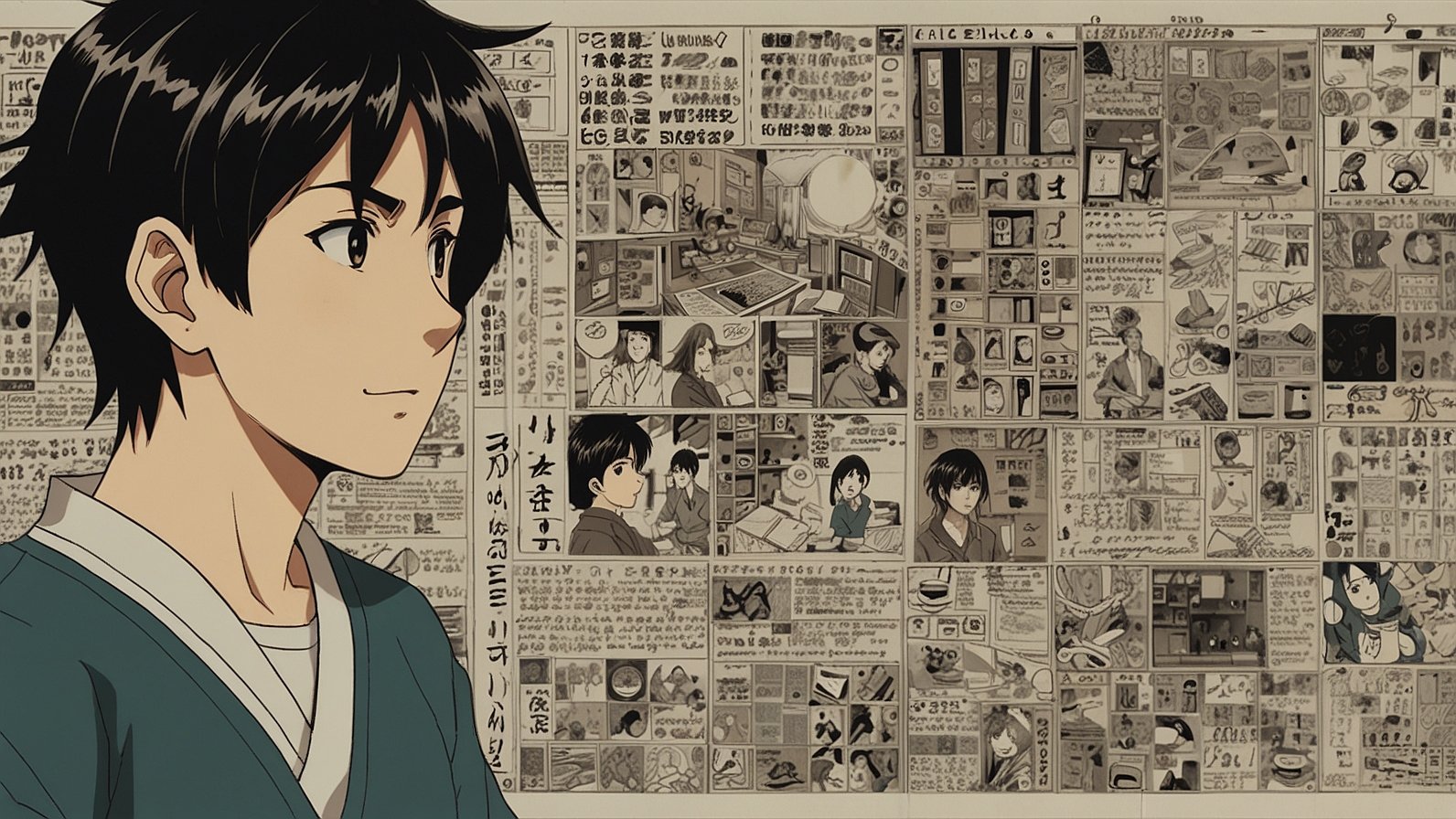Ever fallen down a rabbit hole, searching for the next chapter of an incredible comic, only to find it’s not available in English? You see the rave reviews, the stunning fan art, but there’s no official translation in sight. It’s like hearing about a fantastic party you just can’t get into.
This is where dedicated fan communities step in to bridge the gap. And one name you might have stumbled across in your searches is Olympus Scanlation. But what exactly is it? Is it a website? A secret club? Let’s pull back the curtain together and explore this fascinating corner of the manga world.
So, What in the World is Olympus Scanlation?
Let’s break it down simply. The term “scanlation” is a mashup of “scan” and “translation.” It refers to the fan-driven practice of taking a physical comic (manga from Japan, manhwa from Korea, or manhua from China), scanning its pages, translating the text, and digitally placing the new English text back onto the images.
Olympus Scanlation is simply one of these groups—a dedicated, all-volunteer team that does this exact thing. Think of them less as a shadowy corporation and more like a passionate, well-organized book club that decided to translate the book themselves for everyone to enjoy. They focus on titles that are lesser-known, niche, or haven’t yet been picked up by official English publishers. Their main goal? To share stories they love with a wider audience that would otherwise never get to read them.
The Heart of the Machine: How Olympus Scanlation Actually Works
You might picture a lone translator working in a basement, but the process is far more collaborative and complex. It’s a multi-stage assembly line of fandom, where each volunteer has a specialized role. Here’s a peek at their typical workflow:
- Sourcing & Scanning: It all starts with the raw material. If a physical copy is available, a “scanner” will carefully scan each page at a high resolution. For digital releases, the “provider” acquires the original, untranslated files.
- Translation: This is the crucial first step in making the content accessible. A translator, who is fluent in both the source language and English, meticulously translates the original text. Their job isn’t just literal translation; it’s about capturing the tone, humor, and cultural nuances so the story feels authentic in English.
- Cleaning: Now, the original Japanese, Korean, or Chinese text needs to be removed from the images. This is the “cleaner’s” job. Using software like Photoshop, they digitally erase the text from speech bubbles and sound effects, leaving a blank canvas. This is often trickier than it sounds, especially when text overlaps with detailed artwork.
- Redrawing: This is where the magic happens. After the text is cleaned, there can be gaps in the artwork. The “redrawer” is an artistic volunteer who reconstructs the background art and textures that were behind the erased text. They essentially repaint the artwork so you can’t tell anything was ever there. It’s a painstaking process that requires a real artistic touch.
- Typesetting: Next, the “typesetter” comes in. They take the newly translated script and place it into the cleaned and redrawn speech bubbles. A good typesetter chooses fonts and sizes that match the comic’s mood—a bold, impactful font for a scream, a delicate script for a whisper—and ensure the text is easy and pleasant to read.
- Quality Checking & Release: Finally, a proofreader or quality checker (QC) gives the chapter a final once-over, catching any typos, formatting errors, or translation inconsistencies. Once it gets the green light, the chapter is released to their reader hubs and Discord community.
| Step | What the Page Looks Like |
|---|---|
| Original Japanese Page | A beautiful manga page filled with intricate art and Japanese text in speech bubbles and sound effects. |
| After Cleaning & Redrawing | The same beautiful art, but the text is gone. The speech bubbles are empty, and any art damaged during cleaning has been expertly redrawn. |
| Final Olympus Scanlation | The page now has perfectly placed, easy-to-read English text that fits seamlessly into the artwork, ready for an English-speaking audience. |
More Than Just a Website: The Community Vibe
What truly sets groups like Olympus Scanlation apart from a simple file-sharing site is their emphasis on community. They aren’t just dumping chapters into the void. They often operate through Discord servers or dedicated reader hubs where fans can:
- Discuss the latest chapters in real-time.
- Get to know the staff and volunteers behind the projects.
- Provide feedback and report any issues they find.
- Share their excitement for the stories they love.
This creates a vibrant, living ecosystem around the comics they work on. It’s a shared passion project, and that energy is palpable when you’re reading one of their releases.
The Big Question: Is This Legal? And How Does Olympus Handle It?
This is the million-dollar question, and it’s important to address it head-on. The act of scanlation itself exists in a legal gray area. It involves distributing copyrighted material without a license from the original creators or publishers.
However, most credible groups, including Olympus, operate with a specific ethical code. Their most important and widely respected policy is the “Take-Down Policy.” This means that if a series they are translating gets officially licensed in English—meaning a company like VIZ Media, Yen Press, or Seven Seas picks it up—they will immediately cease their work on it and remove their chapters.
Why? Because they want to support the industry and the creators. They see their role as promotional and gap-filling. Once an official, monetized version is available, they believe fans should support the official release, which ensures the actual artists and writers get paid for their hard work.
So, while the foundational act isn’t strictly legal, groups like Olympus position themselves to minimize harm and step aside when the professional industry steps in.
The Future of Fan Translations
The landscape of official manga translation is changing rapidly. Publishers are getting faster at licensing popular series, and services like Manga Plus are simul-releasing chapters the same day they come out in Japan. This is fantastic news for fans and creators!
In this new world, the role of scanlation groups like Olympus is evolving. They are shifting even more towards truly niche, overlooked, or completed series that have little chance of an official translation. They are becoming the archivists and champions of hidden gems, ensuring that no great story is lost to a language barrier.
Your 3-Step Guide to Engaging Responsibly
If this world intrigues you, here’s how you can dive in thoughtfully:
- Explore and Discover: Use groups like Olympus to find incredible stories you’d never find otherwise. Let them be your guide to new genres and artists.
- Support the Official Release: If you fall in love with a scanlated series and discover it gets licensed, please buy the official volumes. This is the single best way to thank the creator and ensure they can keep making the stories you love.
- Be a Respectful Fan: Remember that everyone working on these projects is a volunteer. Be patient, be kind in your feedback, and respect the rules of their community.
The world of Olympus Scanlation is a testament to what fans can achieve through pure passion and collaboration. It’s a complex, nuanced, and incredibly dedicated space that, at its heart, is all about a shared love for great comics.
What about you? Have you ever discovered a favorite series through a scanlation group? I’d love to hear about your finds in the comments below!
You May Also Read: هنتاوي com: Your Ultimate Arabic Gateway to Anime & Manga Magic!
FAQs
Is it safe to visit Olympus Scanlation websites?
While the group itself is a community project, the sites hosting their content are often ad-heavy and can sometimes feature pop-ups. Using a good ad-blocker and modern antivirus software is always a prudent step when browsing any fan-made content site.
Can I join a group like Olympus Scanlation?
Absolutely! Most groups, including Olympus, are always looking for volunteers. If you have skills in translation, cleaning, redrawing, typesetting, or proofreading, you can usually find application information on their Discord server or main website.
Why do some scanlation groups have watermarks on the pages?
The watermark, often a group’s logo, is a way to claim credit for the significant labor involved. It helps prevent other, less scrupulous sites from simply stealing their work and re-uploading it as their own.
How is this different from official piracy sites?
The key difference is intent and organization. Official piracy sites often mass-aggregate content without permission, run ads for profit, and have no regard for creators. Scanlation groups are non-profit, community-focused, and operate with a stated ethical code to respect official releases.
I saw a mistake in a chapter. What should I do?
Most groups have a channel on their Discord or a contact method specifically for error reporting. Politely pointing out a typo or a formatting issue is usually appreciated, as they want to release the highest quality product possible.
Do the creators know about this? And what do they think?
Opinions among creators vary widely. Some see it as harmful piracy that cuts into their sales. Others have acknowledged that for some series, scanlations have built an international fanbase that later led to official licensing and success. It remains a deeply controversial topic within the industry.
Why the name “Olympus”?
Many scanlation groups choose thematic names, often from mythology, history, or pop culture. “Olympus,” the home of the Greek gods, likely evokes a sense of quality, prestige, and a community of skilled individuals working together.










